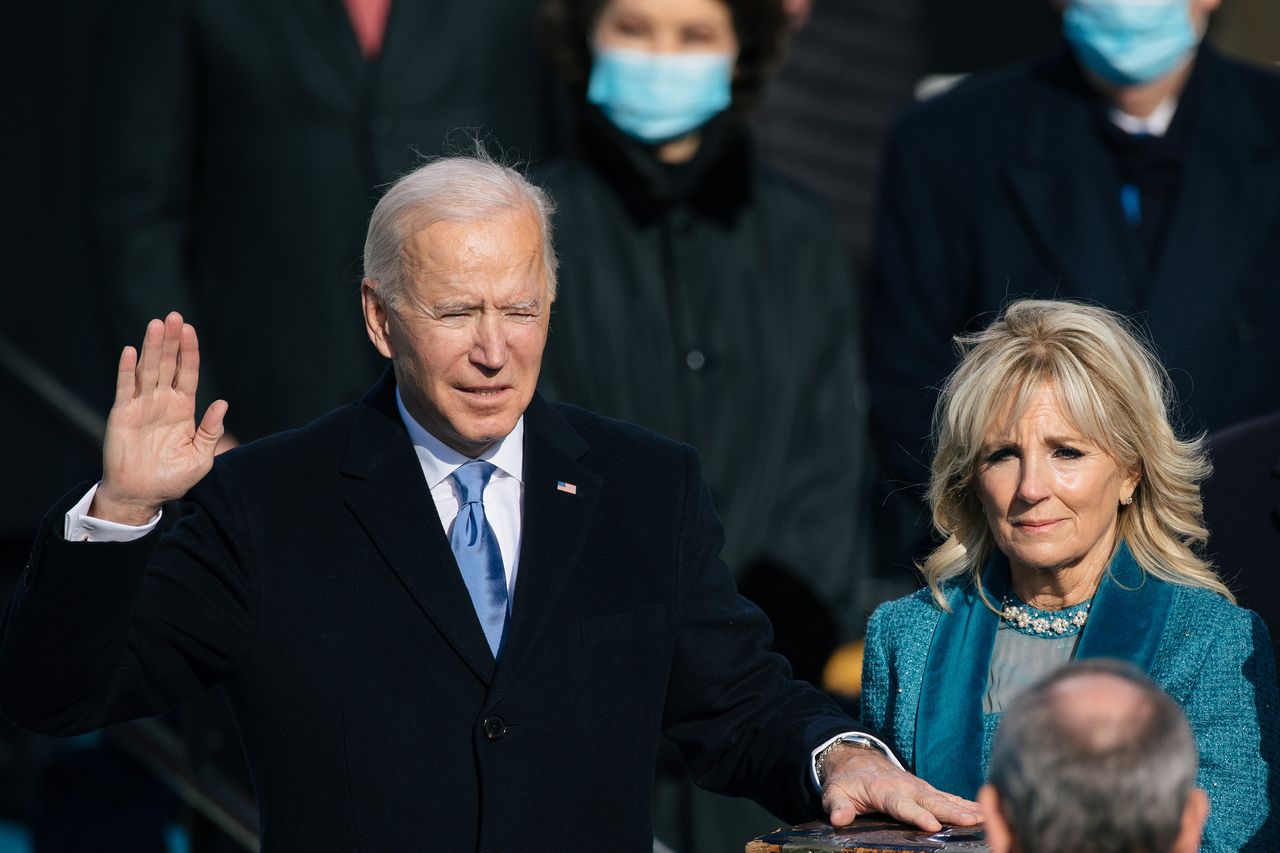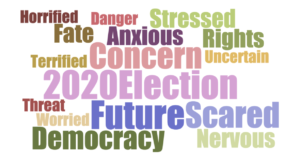January 21st, 2021 was a special day for our country: the Inauguration of President Joe Biden. The recent attacks on the United States Capitol only increased the importance of the inauguration of the 46th president. The Hewitt School graciously decided to give students a half-day to promote virtual attendance of the Inauguration and limit the interruptions. Acknowledging the weight of the day, giving space to debrief and not feel stressed about the work was important.
Before the end of the shortened day, Hewitt hosted a program that followed up on the discussion about the Election with Hewitt’s Election Programming and considered the significance of the Inauguration ceremony. The student body heard presentations from Ms. Knight, Chloe V. ‘22, and Ms. Stevens.
To start off the programming, Ms. Knight gave a presentation on the historical context of inaugurations and the historical significance of this specific inauguration, namely due to Trump’s decision not to attend and the rampant protection services in place. She also included information and photos of other parts of the inauguration ceremonies — such as the inauguration ball — that, unfortunately, will not be happening this year due to COVID-19 precautions.
Next, Chloe V. ‘22 had a presentation about the evolution of the role of a woman in the White House. In a discussion about the role of First Ladies, she spoke about the history of the title and position as well as the expansion of a First Lady’s role throughout history. Finally, Chloe shared important information about roles and responsibilities taken by women, not in connection with their husbands, who paved the way for Kamala Harris to be elected Madam Vice President. These women included Shirley Chisholm, the first female candidate for the Democratic Party’s presidential nomination, and Hillary Clinton, the Secretary of State under President Obama and former candidate for President of the United States. Of course, Chloe spoke about Kamala Harris, but also gave information about the other women in Biden’s cabinet: Deb Haaland, Jennifer Granholm, Linda Thomas-Greenfield, Neera Tanden, and Avril Haines. Hewitt Upper School students remarked on the importance of the day: it was the first time in our nation’s history when young women like us see ourselves reflected in our country’s government.
Finally, Ms. Stevens provided more information about the next administration’s cabinet, in a historical context. Drawing from the Constitution, students gained a basic understanding of the process of appointing and approving a cabinet. Then, Ms. Stevens spoke about the growth of the cabinet by explicitly showing the number of members and executive offices (four) in George Washington’s cabinet, compared to the fifteen executive offices and thirteen positions that make up the White House staff (not including the Vice President) appointed by Joe Biden. This explained to students the growing multitude and weight of the Executive branch of government, especially compared to the Legislative and Judicial branches. Next, Ms. Stevens analyzed how well the Biden administration succeeded in making his cabinet “diverse” and “experienced” (his goals) by comparing its demographic to the people of the United States and by highlighting specific members of the cabinet that lived up to those ideals: Janet Yellen, Lloyd J. Austin III, Alejandro Mayorkas, Deb Haaland, and Merrick Garland.
Having learned much about the event itself, students were able to watch the inauguration from a more informed perspective. Especially during a time of increased uncertainty and confusion regarding the political situation, students found the knowledge and relative normality of the ceremony comforting. It was reassuring — for students and faculty alike — to see the messages of unification, hope, and collaboration being enacted at the national level.
In addition to the pre-Inauguration programming (modeled to be as proactive as the pre-Election programming), Hewitt hosted areas for reflection. After the ceremony, Young Women’s Cooperative hosted an open session to process the inauguration. The following day, many classes paused their usual curriculums to dedicate time to debrief the inauguration. In English classes, for example, students analyzed Biden’s inaugural address and Amanda Gorwin’s poetry.
Hewitt’s inauguration programming served as a time for students to learn and debrief about this historical event. It is crucial as young women and emerging adults to actively educate ourselves. In the fifth week of Joe Biden’s presidency, the Hewitt community is still engaging critically with politics through clubs and opportunities like these programmings and encouraging political awareness and activity during this memorable time. We are intrigued to see what the future holds.





Be First to Comment